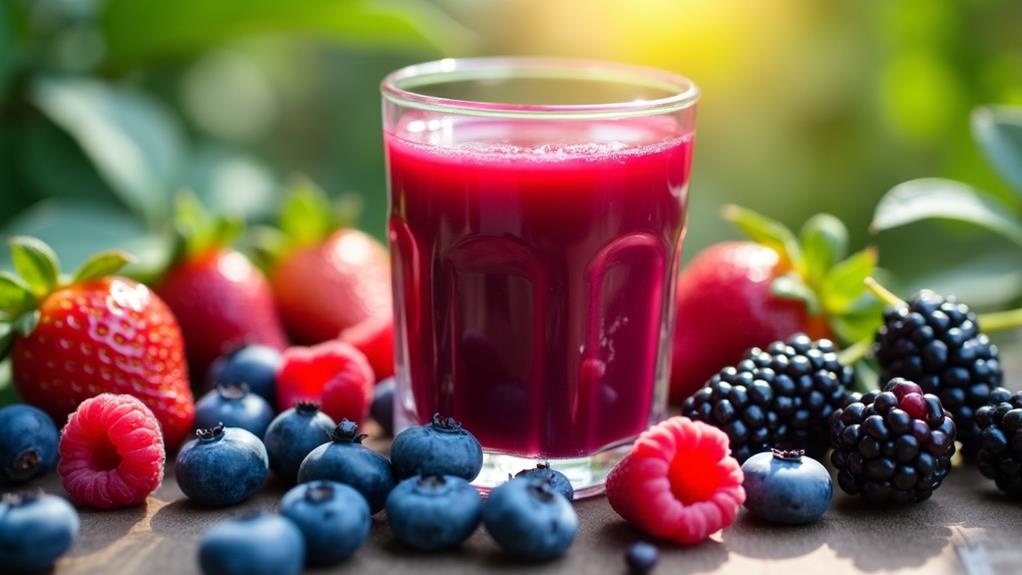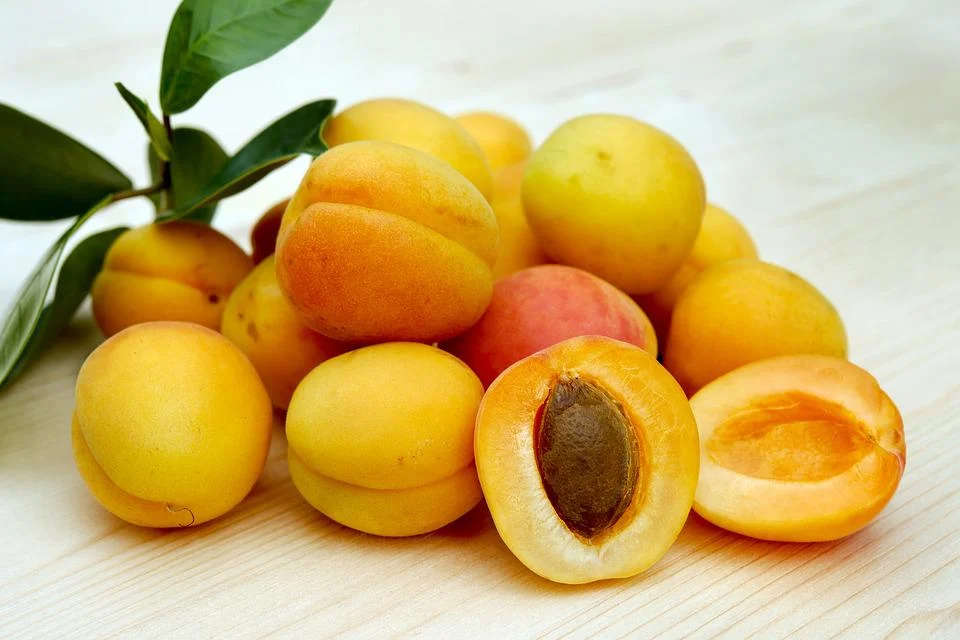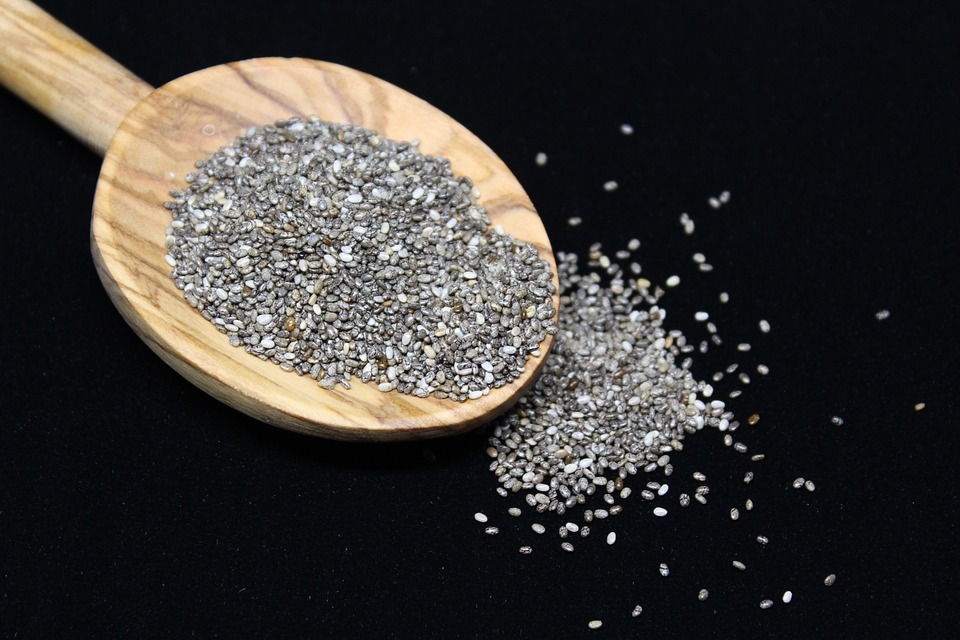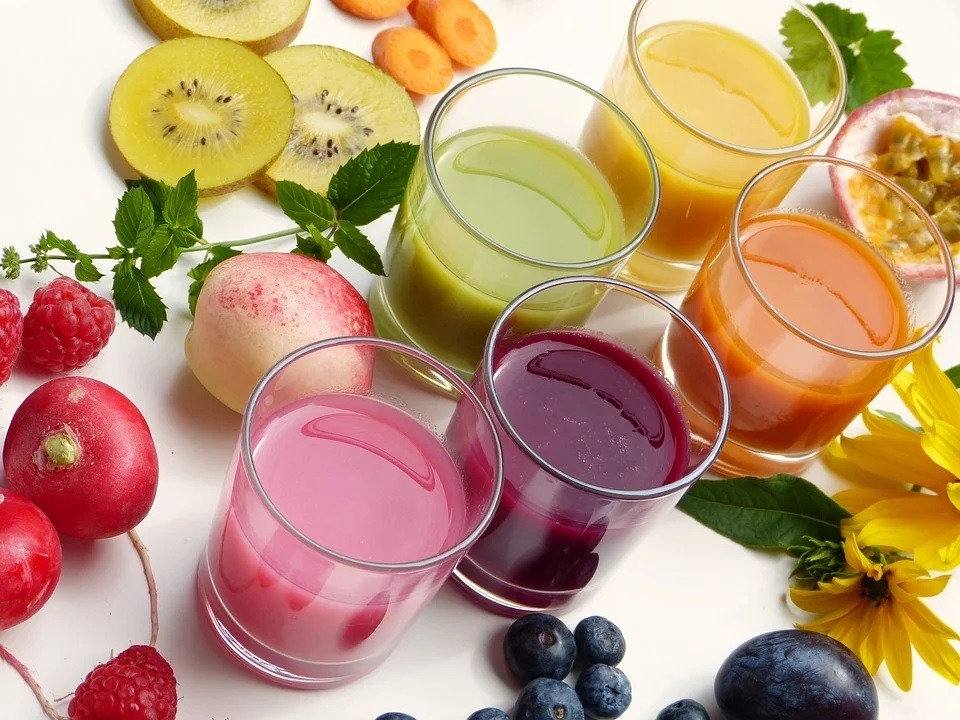Understanding Fruit Juice Nutrition: Benefits and Facts
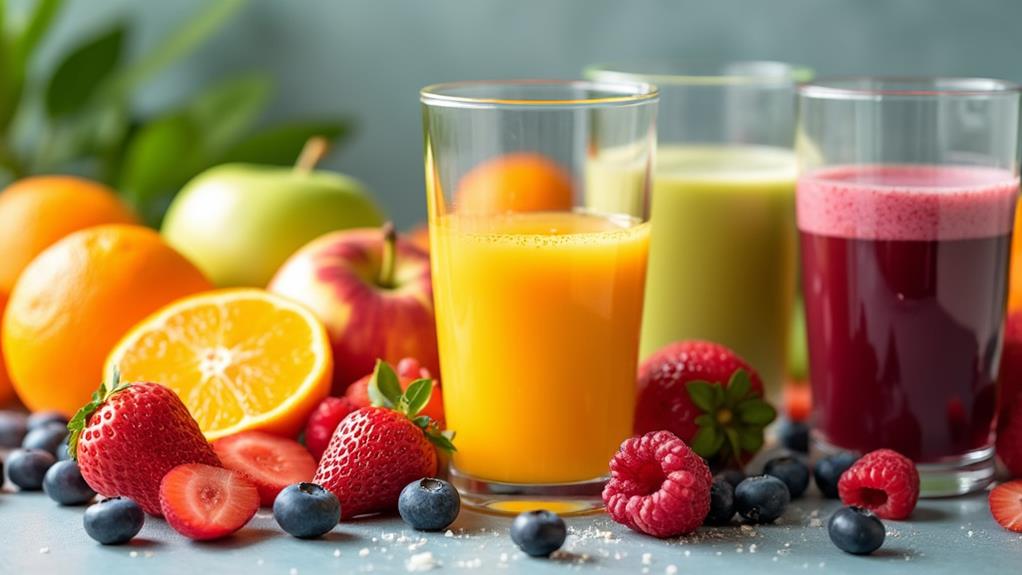
When you think about fruit juice, you likely envision a refreshing, vitamin-rich beverage that promotes health. While fruit juice indeed provides essential vitamins and antioxidants, it also contains high levels of natural sugars and calories. To optimize your fruit juice consumption, it's crucial to understand its full nutritional profile, select the appropriate type, and monitor your intake. Let's explore these factors to ensure you're making informed choices in your daily diet.
Nutritional Composition
When examining the nutritional composition of fruit juices, it's clear they pack a significant punch. Typically, fruit juices contain between 100-140 calories per cup. For instance, orange juice has about 110 calories, while pomegranate juice contains around 135 calories. Consuming these beverages in excess can lead to weight gain, so moderation is key.
Fruit juices are rich in carbohydrates, offering 25-30 grams per cup, primarily from natural fruit sugars. Opt for 100% fruit juice to avoid added sugars that diminish nutritional value. Despite the high sugar content, these drinks provide essential vitamins and minerals. Orange juice, for example, can fulfill your entire daily vitamin C requirement, while pomegranate juice supplies nearly half of your daily vitamin K needs.
Additionally, fruit juices are high in antioxidants, which help reduce inflammation and support overall health. They also contain significant amounts of potassium and magnesium, contributing to their health benefits. However, the high sugar content underscores the need for moderation to prevent potential health risks.
Health Benefits
Fruit juices offer numerous health benefits, making them more than just a sweet indulgence. With a wide variety of options, you can boost your vitamin C intake, crucial for a robust immune system and healthy skin. For example, one cup of orange juice provides your entire daily requirement of vitamin C. Pomegranate juice is not only delicious but also rich in antioxidants and supplies nearly 50% of your daily vitamin K needs, promoting cardiovascular health and potentially enhancing memory.
Cranberry juice is renowned for its ability to help prevent urinary tract infections (UTIs) due to its unique antioxidants. It also offers about 26% of your daily vitamin C per serving. For fitness enthusiasts, tart cherry juice aids in muscle recovery and reduces inflammation thanks to its anti-inflammatory properties.
Tomato juice is a versatile choice, high in lycopene and vitamin C, supporting cardiovascular health and potentially lowering the risk of certain cancers. It provides these benefits with just 41 calories per cup. By selecting the right fruit juices, you can significantly enhance your health without sacrificing flavor.
Serving Recommendations
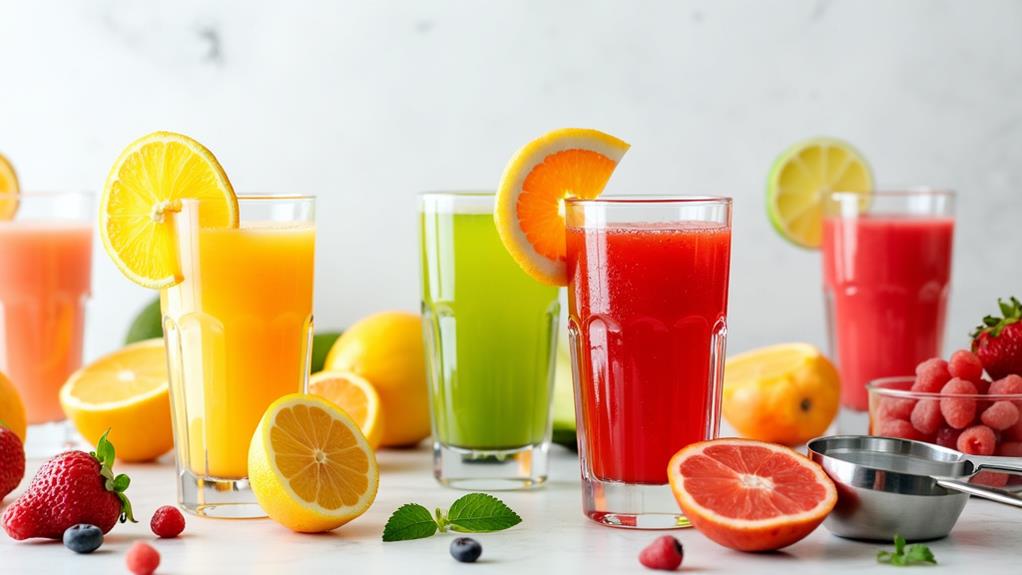
Moderation is essential when consuming fruit juice to manage sugar and calorie intake. Adults should limit their intake to 8 ounces per day and prioritize whole fruits for their fiber content. For children, adhere to age-specific guidelines to control portion sizes, and always choose 100% fruit juice without added sugars for optimal nutritional benefits.
Daily Intake Limits
To maintain a balanced diet and manage sugar intake, it's important to monitor fruit juice consumption. For adults, the daily fruit intake recommendation is 1.5 cups for women and 2 cups for men, with at least half of this coming from whole fruits and vegetables due to their higher fiber content, which is crucial for digestion and overall health.
Limit fruit juice consumption to no more than 8 ounces (1 cup) daily to keep sugar intake within recommended guidelines. Choose 100% fruit juice without added sugars to maximize nutritional benefits and contribute to your daily fruit intake.
For children, the American Academy of Pediatrics recommends the following daily fruit juice limits: 4 oz for ages 1-3, 4-6 oz for ages 4-6, and up to 8 oz for ages 7 and older. By following these guidelines, you ensure that your family receives the nutrients from fruit juice without excessive sugar intake. Prioritize whole fruits and vegetables for their superior nutritional benefits.
Juice Vs. Whole
While fruit juice offers a convenient way to meet your daily fruit intake, whole fruits are generally the superior choice for several reasons. Whole fruits provide dietary fiber, which aids in digestion and helps regulate blood sugar levels. In contrast, fruit juice lacks this crucial fiber, making it easier for sugar to enter your bloodstream, potentially leading to spikes in blood sugar.
Here's a quick comparison:
| Aspect | Whole Fruits | Fruit Juice |
|---|---|---|
| Dietary Fiber | High | None |
| Sugar Intake | Lower | Higher |
| Health Benefits | Better digestion and satiety | Convenient, but less satiating |
The U.S. Department of Agriculture recommends adults consume 1.5 to 2 cups of fruit daily, with at least half of that intake coming from whole fruits to enhance fiber and nutrient benefits. Additionally, limit fruit juice intake to no more than 8 ounces per day. The American Academy of Pediatrics suggests even stricter limits for children to prevent excessive sugar intake. By prioritizing whole fruits, you can enjoy improved digestion, better blood sugar regulation, and meet your daily fruit consumption recommendations.
Portion Control Tips
Managing portion sizes is crucial for maintaining a balanced diet and maximizing the benefits of fruit consumption. When it comes to fruit juice, portion control is essential to avoid excessive sugar intake. Adults should limit their consumption to no more than 8 ounces of 100% fruit juice daily. The American Academy of Pediatrics recommends the following guidelines for children: 4 ounces for ages 1-3, 4-6 ounces for ages 4-6, and up to 8 ounces for ages 7 and older.
It's important to ensure that at least half of your daily fruit intake comes from whole fruits. Whole fruits provide essential fiber and contain fewer concentrated sugars compared to fruit juice. Monitoring serving sizes can help you better manage your fruit intake and avoid unintended sugar consumption. For example, one cup of juice can be equivalent to multiple whole fruits, potentially leading to higher sugar intake.
Choose 100% fruit juice with no added sugars to maximize nutritional benefits while managing sugar consumption. By adhering to these serving recommendations and focusing on portion control, you can enjoy the health benefits of fruit juice without overindulging.
Allergies and Adverse Effects
Experiencing allergies from fruit juice can be unexpected, particularly if you are not allergic to the whole fruit. This can occur due to proteins or additives present in the juice. Commercial fruit juices often contain additives and preservatives that can trigger allergic reactions. Heat extraction methods used in juice production may not entirely eliminate allergenic proteins, though they can reduce the risk.
Additionally, consuming excessive fruit juice can lead to health complications due to its high sugar content, which can cause weight gain and increase the risk of diabetes. Here are some potential issues to be aware of:
- Allergic reactions can occur from additives and preservatives.
- Weight gain due to high sugar levels in fruit juice.
- Increased diabetes risk from frequent, excessive consumption.
- Health complications that may necessitate consulting healthcare providers.
If you have known allergies or intolerances, exercise caution with your juice choices. Consulting healthcare providers can help ensure you consume fruit juice safely and avoid adverse effects. Always read labels carefully and opt for juices with minimal additives and preservatives to reduce the risk of allergic reactions.
Varieties of Fruit Juices
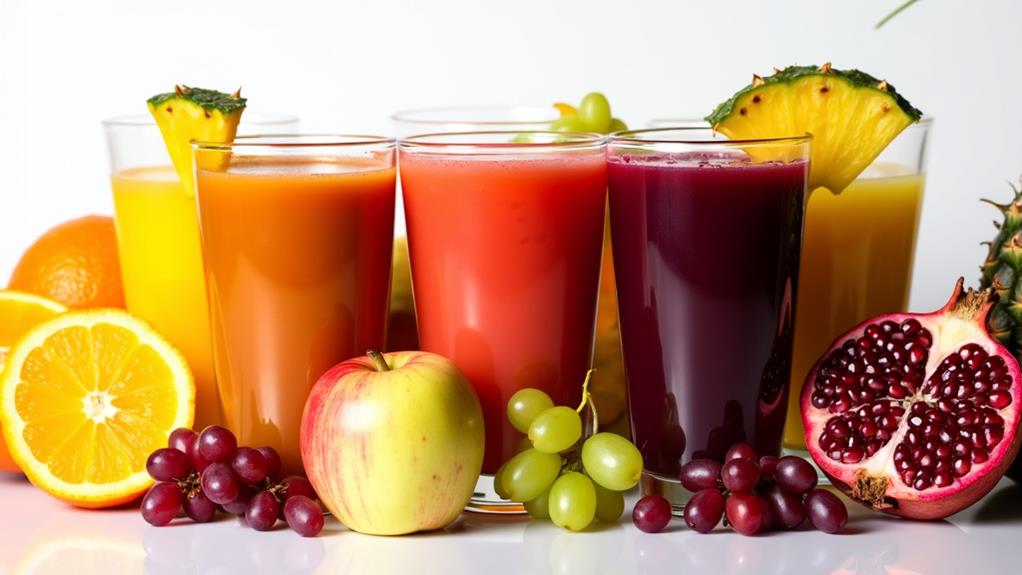
When exploring fruit juice options, you'll find each variety offers unique nutritional benefits. Orange juice is a vitamin C powerhouse, boosting your immune system. Cranberry juice helps prevent UTIs and supports heart health. Prune juice aids digestion, while pomegranate juice, rich in antioxidants, can improve memory and heart function. Lastly, tomato juice is surprisingly nutritious, offering high vitamin C content and cardiovascular benefits.
Nutritional Profile Highlights
Exploring the nutritional profiles of various fruit juices reveals their unique benefits and potential health impacts. Orange juice, with its high vitamin C content, provides 83% of your daily value in just one cup, supporting your immune system and skin health. Cranberry juice, known for its antioxidant properties, can help prevent urinary tract infections (UTIs) and improve blood pressure, delivering 26% of your daily vitamin C needs in 116 calories.
Pomegranate juice, rich in antioxidants, offers 134 calories per cup and 22% of the daily value for vitamin K, benefiting heart health and potentially improving memory function. Tomato juice is another excellent choice for cardiovascular health, providing an impressive 189% of your daily vitamin C needs in just 41 calories, thanks to its high lycopene content.
Prune juice, although higher in calories at 182 per cup, contains 2.5 grams of fiber, making it effective for alleviating constipation and aiding digestion.
- Boost your immune system with orange juice.
- Support heart health with pomegranate and tomato juices.
- Prevent UTIs with cranberry juice.
- Ease digestion with prune juice.
Each type of juice offers distinct advantages, making them versatile additions to a balanced diet.
Health Benefits Overview
Maximizing your daily nutrient intake can be achieved by selecting the right fruit juices, which offer essential vitamins and antioxidants. Orange juice is a nutritional powerhouse, providing 117 calories per cup and 83% of your daily value (DV) for vitamin C, which supports immune function and enhances skin health.
Cranberry juice is another excellent choice, rich in antioxidants and containing 116 calories per cup. It provides 26% DV for vitamin C and is renowned for preventing urinary tract infections (UTIs). For a more exotic option, consider pomegranate juice, which is packed with antioxidants and vitamin K, offering 134 calories per cup and 22% DV for vitamin K. This juice is linked to improved heart health and memory function.
Tomato juice is notable for its low calorie count—just 41 calories per cup—while delivering an impressive 189% DV for vitamin C. Its high lycopene content supports cardiovascular health and may reduce cancer risk. Finally, prune juice, although effective for easing constipation, is high in sugar at 182 calories per cup. It should be consumed in moderation to avoid excessive sugar intake.
Choose these juices wisely to elevate your health with the vital nutrients they provide.
Storage and Food Safety
Storing fruit juice properly is crucial for ensuring its safety and preserving its nutritional value. By focusing on storage and food safety, you can enjoy your juice without concerns about spoilage or health risks. Most bottled or carton fruit juices require refrigeration after opening, while some need immediate refrigeration to stay fresh. Pasteurized juices are a safer option, as they undergo heat treatment to eliminate harmful bacteria.
For homemade juices, consume them immediately or store them in the refrigerator for no more than 24-72 hours. Proper storage conditions are essential to minimize bacterial growth, so always prioritize hygiene during preparation. For long-term use, frozen juice concentrates are convenient and can be stored for several months.
To keep your juice safe and delicious, remember the following key points:
- Refrigerate opened and freshly made juices promptly to prevent spoilage.
- Choose pasteurized juices to avoid potential bacterial contamination.
- Consume homemade juices within 24-72 hours to ensure freshness and safety.
- Maintain proper hygiene during juice preparation to minimize health risks.
Concentrate Vs. Not From Concentrate
Proper storage and food safety are crucial considerations when choosing between fruit juices made from concentrate and those not from concentrate. "Not from concentrate" juice is made by directly juicing fresh fruit, pasteurizing it, and then packaging it. This method often retains more of the original flavor and nutrients, including higher levels of vitamin C and folate.
In contrast, juices "from concentrate" undergo a process where water is removed to reduce their volume for easier transportation. They are rehydrated before pasteurization. This can lead to a more intense flavor profile but may reduce nutrient retention and affect the fresh fruit's original taste and health benefits. Additionally, "from concentrate" juices may contain added sugars or preservatives, so it's essential to check the labels.
Here's a quick comparison:
| Factor | From Concentrate | Not From Concentrate |
|---|---|---|
| Nutrient Retention | Lower vitamin C and folate | Higher vitamin C and folate |
| Flavor | More intense, less fresh | More natural and fresh |
| Ingredients | May include added sugars/preservatives | Typically just juice itself |
Understanding these differences can help you make more informed choices about your juice consumption.
Potential Health Risks
When considering fruit juice, it is essential to be aware of its potential health risks. Overconsumption can lead to weight gain due to its high calorie content. An 8-ounce glass can pack between 100-180 calories, which adds up quickly. High sugar levels in fruit juices can cause blood sugar spikes, which are particularly concerning for children. Excessive sugar intake is linked to type 2 diabetes and heart disease.
Juices lack the fiber found in whole fruits, which is fundamental for digestive health. Relying solely on juices can lead to digestive issues. Tomato juice, often high in sodium, can contribute to cardiovascular problems, though opting for low-salt versions can mitigate these risks. Furthermore, research indicates that high consumption of orange and grapefruit juices may increase the risk of skin cancer, emphasizing the need for moderation.
Consider these potential health risks:
- Weight gain from high calorie content
- Blood sugar spikes leading to diabetes and heart disease
- Lack of fiber causing digestive health issues
- Cardiovascular problems from high sodium in certain juices
- Increased risk of skin cancer from excessive orange and grapefruit juice consumption
Moderation is key when enjoying fruit juice. Make informed choices to protect your health.
Ongoing Research

While it is important to be aware of the potential health risks associated with fruit juice consumption, it is equally fascinating to explore the ongoing research in this area. Scientists are investigating the diverse health benefits of fruit juices and their complex roles in our bodies. For instance, current research is examining the potential connection between citrus juice consumption and an increased risk of skin cancer, particularly melanoma.
Conversely, cranberry juice is being studied for its effectiveness in preventing urinary tract infections (UTIs), with several peer-reviewed studies supporting its benefits. Additionally, researchers are exploring how fruit juices might influence gut microbiome diversity, which could aid in managing type 2 diabetes.
Childhood obesity and metabolic health are also critical areas of interest. Studies are assessing whether high fruit juice intake correlates with increased obesity rates in children and its broader implications for metabolic health. Furthermore, the potential anti-inflammatory benefits of fruit juices are being investigated, especially their effects on cognitive decline and dementia risk.
These peer-reviewed studies and ongoing research efforts highlight the multifaceted impact of fruit juices on health, underscoring the importance of continued scientific exploration in this field.

